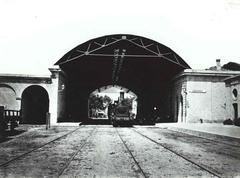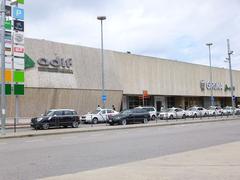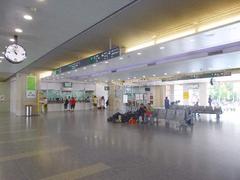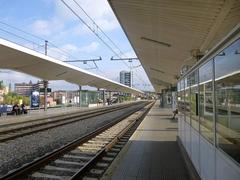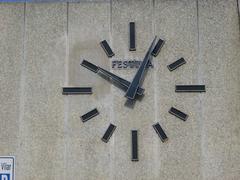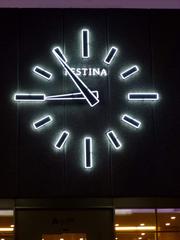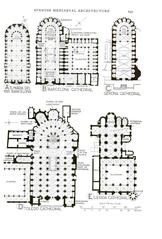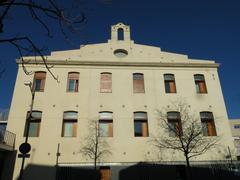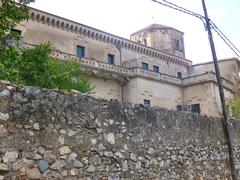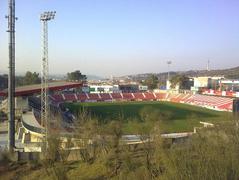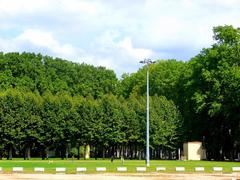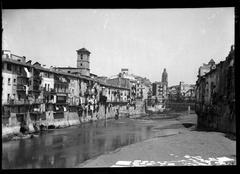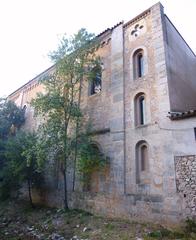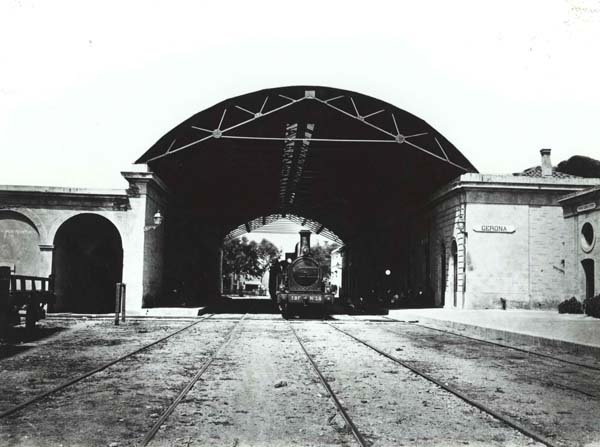
Girona Railway Station Visiting Hours, Tickets, and Travel Guide
Date: 15/06/2025
Introduction to Girona Railway Station
Girona Railway Station, locally known as “Estació de Girona,” is a central transport hub in Catalonia, Spain. Since its establishment in 1862 on the Barcelona–Cerbère line, it has evolved into a crucial node for regional, national, and international rail travel, integrating both high-speed AVE/TGV and conventional train services. The station’s location makes it the ideal entry point to Girona’s historic Old Town, the Jewish Quarter, and iconic landmarks like the Girona Cathedral and Eiffel Bridge—all situated within walking distance or a short transit ride from the station.
Blending 19th-century foundations with modern architectural renovations, Girona Railway Station provides extensive facilities, accessibility features, and connections to sustainable transport modes like buses, bikes, and taxis. It serves as both a functional gateway for travelers and a starting point for exploring Girona’s rich cultural heritage.
This guide offers a comprehensive overview: historical background, architectural highlights, visiting hours, ticketing procedures, amenities, and nearby attractions. For train schedules and bookings, consult the Renfe website, and for local tours, reach out to the Girona tourism office or browse trusted travel resources (The Travel Blogs, Omio).
Contents
- Historical Development of Girona Railway Station
- Architectural Heritage and Design Features
- Practical Visitor Information
- Station Visiting Hours
- Ticketing: How to Buy and Prices
- Accessibility and Amenities
- Travel Tips
- Nearby Historical Sites and Attractions
- Station Layout and Transport Integration
- Economic, Social, and Sustainable Transport Impact
- Exploring Girona Historical Sites
- Girona Cathedral Visitor Guide
- Frequently Asked Questions (FAQ)
- Visuals and Media Suggestions
- Conclusion and Call to Action
Historical Development of Girona Railway Station
Girona Railway Station first opened in 1862 as part of the Barcelona–Cerbère railway, connecting Catalonia with France and the broader European rail network. The original station building reflected 19th-century industrial architecture, characterized by wrought iron and glass canopies. Over the years, significant renovations—including the integration of high-speed AVE services in the 2010s—have modernized the facility while preserving key historic elements (The Travel Blogs).
Architectural Heritage and Design Features
19th-Century Foundations
The station’s early design followed the classic longitudinal layout of the era, with robust materials and a functional, utilitarian style.
Modernization and High-Speed Integration
Major upgrades in the 21st century introduced underground platforms for high-speed trains. These new areas feature minimalist design, bright lighting, and efficient passenger flow. The main building now unites contemporary materials like steel and glass with preserved historical details, exemplifying Girona’s urban evolution (ArchDaily, Success Tours).
Urban Integration and Accessibility
Strategically located between the historic city core and modern neighborhoods, Girona Railway Station offers seamless multimodal connections, including adjacent bus terminals, taxi ranks, and bicycle-sharing stations. Accessibility is a priority, with elevators, ramps, and tactile paving ensuring barrier-free travel (Omio).
Practical Visitor Information
Visiting Hours
- Station: Open daily from 5:00 AM to midnight.
- Ticket offices: Operate from 6:00 AM to 10:00 PM.
- Automated machines: Available 24/7.
Ticketing: How to Buy and Prices
- Online: Purchase via Renfe or mobile apps.
- At the station: Use ticket offices or automated kiosks.
- Pricing: Depends on destination and train type. Example: AVE to Barcelona (€15–€30 one-way); regional trains are less expensive.
- Advance booking: Recommended during peak seasons for best fares and seat availability.
Accessibility and Amenities
- Accessibility: Elevators, escalators, tactile paving, accessible ticket counters, and restrooms.
- Amenities: Waiting lounges, real-time information screens, retail shops, cafés, and public restrooms.
- Connectivity: Taxi rank, local bus stops, parking (including accessible spaces), and bike-sharing facilities.
- Luggage storage: Not available inside the station, but nearby third-party services are accessible (Spanish Airports).
Travel Tips
- Book tickets in advance for popular routes and high-speed trains.
- Arrive 30 minutes before departure, especially for AVE/TGV services.
- Station signage is in Catalan, Spanish, and English for ease of navigation.
Nearby Historical Sites and Attractions
- Girona Old Town: Medieval streets and Roman walls, a 10–15 minute walk from the station.
- Girona Cathedral: Famous for its vast Gothic nave and panoramic views.
- Jewish Quarter (El Call): One of Europe’s best-preserved historic Jewish neighborhoods.
- Eiffel Bridge: Iconic iron structure by Gustave Eiffel.
- Arab Baths and City Walls: Easily accessible on foot or via local bus.
The station is also a gateway for excursions to Figueres (Dalí Theatre-Museum) and the Costa Brava.
Station Layout and Transport Integration
Multi-Level Structure
- High-level (Viaduct) platforms: Serve conventional Barcelona–Cerbère line.
- Low-level (Subterranean) platforms: Dedicated to high-speed standard gauge lines (Perpignan–Barcelona).
- Passenger concourse: Located beneath the viaduct, connecting all platforms with elevators, escalators, and clear signage (Spanish Airports).
Rail Services
- Conventional Rail: Rodalies de Catalunya lines R11 and RG1 connect to Barcelona, Figueres, and regional destinations (Wikipedia).
- High-Speed Rail: AVE and AVANT (Renfe) and TGV (SNCF) link Girona with Barcelona (39–40 minutes), Madrid, and French cities including Perpignan and Paris (Rome2Rio).
- Bus Integration: Girona’s main bus station is adjacent, offering local and long-distance services (Omio).
Sustainable Transport
- Bike-sharing (Girocleta) and bicycle parking support eco-friendly travel.
- No luggage storage inside the station; nearby third-party lockers available.
Economic, Social, and Sustainable Transport Impact
Girona Railway Station has spurred regional economic growth by promoting tourism and business travel, supporting labor mobility, and enhancing cross-border connections with France (Group Sener, Njoy Costa Brava). The station’s integration with bike-sharing and public buses aligns with local and European sustainability goals.
Girona Cathedral Visitor Guide
History and Architectural Significance
The Cathedral of Saint Mary of Girona, begun in the 11th century and completed in the 18th, features a harmonious blend of Romanesque, Gothic, and Baroque styles. Its nave is the widest Gothic nave in the world and houses treasures like the Tapestry of Creation and a Baroque altar.
Visiting Hours and Tickets
- Opening: 10:00 AM–6:30 PM (check official site for current times).
- Tickets: ~€7 for adults, discounts for students/seniors, free for children under 12 and on special days.
- Purchase: Online (recommended) or at the entrance.
Getting There
- From the railway station: 1.5 km walk (15–20 minutes); also accessible by local bus or taxi.
Visitor Tips
- Join a guided tour for in-depth history.
- Early morning or late afternoon visits are ideal for photography.
- Cathedral is accessible; ramps and assistance available on request.
- Explore nearby Old Town sites such as the Jewish Quarter and Arab Baths.
Frequently Asked Questions (FAQ)
Q: What are Girona Railway Station’s opening hours?
A: 5:00 AM to midnight daily.
Q: How do I buy tickets?
A: Online, at ticket offices (6:00 AM–10:00 PM), or 24/7 at automated machines.
Q: Is the station accessible?
A: Yes—elevators, ramps, tactile paving, accessible restrooms, and staff assistance.
Q: Is luggage storage available?
A: Not inside; use nearby third-party services.
Q: How far is it from the station to the historic center?
A: About 1 km (10–15 minute walk).
Q: Can I visit Girona Cathedral from the station easily?
A: Yes, it’s a 15–20 minute walk or a short bus/taxi ride.
Visuals and Media Suggestions
- Exterior and interior images of the station (e.g., “Girona Railway Station main entrance,” “High-speed train platform at Girona”).
- Map showing station location relative to Old Town and major attractions.
- Photos of Girona Cathedral’s façade and nave, panoramic Old Town views.
Summary Table: Key Facilities and Accessibility
| Feature | Details |
|---|---|
| Platforms | 4 high-level (viaduct), 4 low-level (subterranean), 3 platforms per level |
| Ticketing | Online, staffed counters, self-service machines, accessible ticket windows |
| Waiting Areas | Inclusive seating, real-time info screens |
| Amenities | Cafés, shops, restrooms (including accessible), Wi-Fi, charging points |
| Accessibility | Elevators, escalators, step-free access, tactile paving, visual/auditory aids |
| Luggage Storage | Nearby third-party options |
| Connectivity | Taxi rank, bus stops, parking (with disabled spaces), bike-sharing |
Conclusion and Call to Action
Girona Railway Station is more than a transit point—it’s a gateway to Catalonia’s vibrant history, culture, and sustainable future. Its modern facilities, accessible design, and central location make exploring Girona and beyond efficient and enjoyable. For optimal travel, plan ahead with online ticket purchases, arrive early for your train, and take time to discover the city’s medieval marvels.
For real-time updates, train schedules, and personalized travel planning, visit the Renfe website, consult local tourism resources, or download the Audiala app. Explore our related posts for more travel guidance and follow us on social media for the latest updates.
Sources and Further Reading
- City Guide to Girona, Spain, The Travel Blogs, 2023
- Girona Railway Station, Wikipedia, 2024
- Rail Travel in Girona, Njoy Costa Brava, 2023
- Girona Station Travel Guide, Omio, 2024
- Station a Journey Through 20th and 21st Century Railway Architecture and Design, ArchDaily, 2021
- Girona Cathedral Official Website, 2024
- Girona Tourism Official Site, 2024
- Girona Trains Guide, Spanish Airports, 2023
- Barcelona to Girona Day Trip Guide, Abroad with Ash, 2023
- Rail Network Developments in Spain, Group Sener, 2023
- Girona Free Tour, 2024
- Rome2Rio – Girona to Barcelona, 2024
